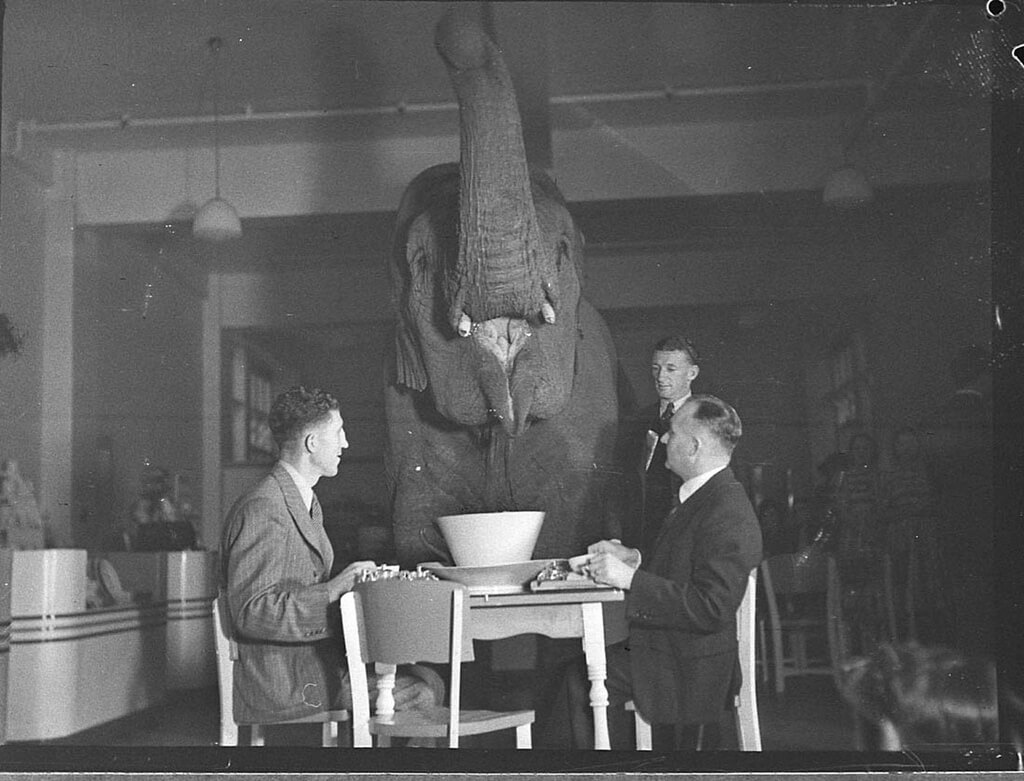
Ever had a gut feeling? Felt butterflies in your stomach? Maybe gotten a little crampy or needed to make an emergency trip to the bathroom during times of stress?
Now, let’s look at this from the other end, so to speak: Maybe you’ve been feeling anxious or depressed. Maybe you feel bad, and you don’t know why. Maybe something in your diet is making you feel this way.
Maybe what you eat is making you sick.
There is an intimate, intricate link between the brain and the gut that scientists are just beginning to understand. Questions are being asked and investigated that, frankly, nobody thought of even a few years ago, because the connections weren’t there yet. That is changing.
[Tweet “There is an intimate, intricate link between the brain and the gut that scientists are just beginning to understand.”]
Here are some fun facts you should know about what scientists call the gut-brain axis:
- You have as many neurons (nerve cells) in your gut as you do in your spinal cord.
- These intestinal nerve cells crank out 90 percent of your body’s serotonin and half of its dopamine. Both of these powerful neurotransmitters help the mind stay calm and focused and are natural anti-depressants.
- If you go to a doctor for irritable bowel symptoms (such as alternating diarrhea and constipation) or dyspepsia (uncomfortable fullness or pain in the upper abdomen, heartburn, or other digestive problems), you are likely to be prescribed one of the same drugs used to treat anxiety or depression. Doctors don’t really understand why these “brain” drugs work on the gut, but they know that they help make symptoms better.
- As many as 40 percent of people who go to the doctor with gastrointestinal problems suffer from irritable bowel syndrome and gastroparesis (the stomach muscles or the nerves that drive them stop working, and food doesn’t move out of the stomach the way it should) – conditions that involve the enteric nervous system. This is the massive highway of nerve cells lining the muscular walls of your esophagus, stomach, intestines, and rectum.
- These nerves control peristalis, the conveyor-belt series of muscle contractions — think of toothpaste being squeezed through a tube — essential for swallowing, for digestion, absorption of food, and for pooping (literally, movement of the bowels).
- These enteric nerves also affect immune responses and inflammation.
- Changes in our mood can also affect everything in the gut.
Is there really a food-mood connection? Here’s a good example: An estimated 1 in 133 Americans have celiac disease, an autoimmune disease in which the body attacks the small intestine (this can be diagnosed with a blood test). The culprit is gluten, which is in wheat. If you have celiac disease and you don’t change your diet, and you get an upper endoscopy, if you are lucky, it will likely show a telltale “cobblestoning” of the small intestine – damage to the villi, tiny, fingerlike oars that help the small intestine absorb the nutrients in your food. This damage is reversible. Within a few weeks of going gluten-free, these little dudes come back and your small intestine can do its job again. If you are not lucky, a biopsy to the small intestine will show that the celiac disease has caused cancer, and this is not good.
Am I saying you have celiac disease if bread gives you a belly ache? No, but bear with me: One, a lot of people test negative for the disease itself, but notice they feel bad when they eat bread or pasta. They feel bloated, maybe a little cranky; maybe they also get headaches. They also feel better when they eliminate gluten from their diet. They may have gluten intolerance, which is not the same as celiac disease, but responds well to a change in diet. Two: People with celiac disease who give up gluten notice a lot of other changes in their lives. They may put on muscle mass, because their body was starving from the inside; no matter how much they ate, they weren’t absorbing the good nutrients, because their small intestines didn’t function right. They also tend to realize, with great surprise, that they have felt bad for years; they just didn’t know why. And here’s the kicker: Their mood improves.
Celiac disease can cause depression, irritability, and anxiety, but can get better with a diet change.
What I want you to think about is this: If it can happen with one gut disease, it can happen in other problems involving the gut and/or diet. Food affects mood. Maybe you have a food allergy or intolerance that you didn’t know about. The nerve cells in the gut affect your mood. It’s the opposite of those ads for Las Vegas: What happens in the gut does not necessarily stay in the gut.
Food, Body & Mind
“The gut has its own brain,” says Pankaj “Jay” Pasricha, M.D., gastroenterologist and neuroscientist, director of the Center for Digestive Diseases at Johns Hopkins Bayview Medical Center, and co-director of the new Johns Hopkins Food, Body & Mind Center. At this center, the science is a fusion: it’s Gastroenterology, Neuroscience, Microbiology, Immunology, and Psychiatry. They’ve got a bunch of doctors and scientists working together to figure out just how important a role the gut plays in diseases that seem like they wouldn’t trouble the intestines – diabetes, heart disease, depression, anxiety, even cancer.
I have interviewed Jay Pasricha several times for the Johns Hopkins Center for Innovative Medicine’s magazine, Breakthrough. At the Center, he says, many of their patients come to them by way of a rather long road. Basically, they’ve been through a lot — medicines that may not have worked, for example, or doctors who may have addressed one of their problems without realizing the whole body was involved. Pasricha told me that his research involves multiple aspects of the gut-brain axis. He is very interested in the pancreas, in exploring “how the gut can be a signal that drives metabolic disease,” he says, and “finding the mechanism by which gastric bypass surgery relieves insulin resistance and diabetes.” Pasricha has also shown in mouse models of diabetes that there is remodeling of the enteric nerves that help control insulin production; he believes that a new approach to treating diabetes — by changing the way the nerves signal to each other — may be on the horizon.
Enteric nerves
Exactly how the brain in the gut relates to the “big brain” is what Pasricha and his colleagues are working hard to find out, testing the potential of never-before-recognized molecular targets for treatment of nausea, abdominal pain, and other symptoms that may arise when mind-gut pathways go awry. “The treatment of motility disorders (like irritable bowel disease and gastroparesis) really requires the art as well as the science of medicine, because every patient responds differently,” notes Pasricha. “In fact, there are very few effective treatments, and what works for one person might not be very helpful for another,” which is why he believes that entirely new avenues of treatment might make a huge difference in care.
But better treatment for motility disorders is most likely just the tip of the gut-brain iceberg, Pasricha believes. The enteric nerves almost certainly play a role in obesity, diabetes, in pancreatitis; they may even be involved in Alzheimer’s disease, some forms of cancer, and other diseases that aren’t usually thought of as relating to the gut.
These nerves are involved in immune responses, he explains, “and this process, called neurogenic inflammation, is a problem in many disabling diseases.” Signals from the enteric nervous system affect metabolism in the brain, liver, and elsewhere. “The bigger picture here is enormous.”
Next: Bacteria in your gut, good and bad.
In addition to the book, I have written about prostate cancer on the Prostate Cancer Foundation’s website, pcf.org. The stories I’ve written are under the categories, “Understanding Prostate Cancer,” and “For Patients.” I firmly believe that knowledge is power. Saving your life may start with you going to the doctor and knowing the right questions to ask. I hope all men will put prostate cancer on their radar. Get a baseline PSA blood test in your early 40s, and if you are of African descent, or if cancer and/or prostate cancer runs in your family, you need to be screened regularly for the disease. Many doctors don’t do this, so it’s up to you to ask for it.
©Janet Farrar Worthington

 You asked for it, and you got it! A nice lady at church told me, “My husband has heartburn and keeps hoping it will go away. He won’t go to the doctor, and he doesn’t know anything about what he should do. He needs very basic information.”
You asked for it, and you got it! A nice lady at church told me, “My husband has heartburn and keeps hoping it will go away. He won’t go to the doctor, and he doesn’t know anything about what he should do. He needs very basic information.” I may not know you personally, but I know that, because you’re a man, chances are good that you do two things. One, you most likely respond to health
I may not know you personally, but I know that, because you’re a man, chances are good that you do two things. One, you most likely respond to health  Low testosterone is a worrisome thing for many men. It doesn’t help that many have seen advertisements for testosterone-boosting supplements promising to cure all — except what’s really causing the problem, notes Kevin Billups, M.D., formerly Director of the Brady’s Men’s Health and Vitality Program at Johns Hopkins Medical Institutions and now Medical Director of the Billups Center in Murfreesboro, Tenn.. “Men think it’s just a sex drive thing, but a lot of what we see is related to other common chronic conditions. Treating that one symptom without finding out the whole story would not be a good idea.”
Low testosterone is a worrisome thing for many men. It doesn’t help that many have seen advertisements for testosterone-boosting supplements promising to cure all — except what’s really causing the problem, notes Kevin Billups, M.D., formerly Director of the Brady’s Men’s Health and Vitality Program at Johns Hopkins Medical Institutions and now Medical Director of the Billups Center in Murfreesboro, Tenn.. “Men think it’s just a sex drive thing, but a lot of what we see is related to other common chronic conditions. Treating that one symptom without finding out the whole story would not be a good idea.”